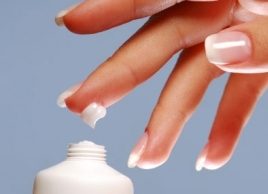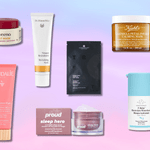Natural home remedies: Eczema
Like so many skin problems, eczema can itch worse than a bad conscience. Here are some home remedies to get some relief from the rash

Source: Adapted from 1,801 Home Remedies, Reader’s Digest
Natural home remedies for eczema
Like so many skin problems, eczema can itch worse than a bad conscience. Your avenues of attack: Keep out of the water (that means no dishwashing, frequent hand washing, or long showers) as much as possible. Guard your skin with a thick, heavy-duty cream’not a watery lotion. Stay away from eczema aggravators, such as harsh soaps and anything you discover you’re sensitive to. And, hard as it may be, avoid scratching.
What you can do for eczema
- To cool your itch, soak a washcloth in ice-cold milk and lay the cloth onto the itchy area. Repeat several times daily as needed. For an oozing rash, apply calamine lotion. It can help with the itching and also dry out the rash. Add colloidal oatmeal to your bath. This ground oatmeal floats suspended in the water and is soothing to itchy skin.
- Keep your baths and showers under 10 minutes. In fact, don’t bathe every day if you don’t have to. Eczema tends to get worse when skin is dry, and excessive bathing washes away the protective oils that keep your skin moist. Also, use lukewarm water in the tub or shower instead of piping hot water.
- After you bathe, use a heavy cream-based moisturizer to guard the skin against irritants. Even petroleum jelly or solid vegetable shortening, such as Crisco, works well. Avoid water-based lotions, as well as lotions that contain fragrance.
- Stop the scratching. If the itchy spot is somewhere way too accessible, such as your wrist or the back of your hand, cover it with a small bandage to remind yourself not to scratch. Some people scratch in their sleep. If you’re waking up with scratched skin, wear thin cotton gloves (or, in a pinch, a pair of socks) over your hands at night.
A natural boost for eczema treatment
- Eat more foods rich in essential fatty acids like omega-3s, which help reduce inflammation and allergic reactions. You’ll find these in rich amounts in walnuts, avocados, salmon, mackerel, and tuna. Another good source of omega-3s is flaxseed oil. Take up to one tablespoon each day; it won’t hold up in high cooking temperatures, so drizzle it on salad, mix with yogurt, or hide it in other foods.
- Take 400 IU of vitamin E each day to help counteract itchy, dry skin. (Off-limits if you’re taking blood-thinning drugs, unless you have your doctor’s approval.)
- Take 25,000 IU of vitamin A each day for up to 10 days when you’re having an eczema flare-up, then reduce the dose to 10,000 IU daily. But check with your doctor first. Long-term use of vitamin A can result in osteoporosis, and an overdose of this vitamin can cause thickening and peeling of skin and hair loss.
- Zinc helps your skin heal, and it also helps your body make use of essential fatty acids. Take 30 milligrams of zinc daily. Because zinc can interfere with copper absorption, also take 2 milligrams of copper each day if you continue to take zinc for more than a month.
- Go to gotu. The herb gotu kola, used externally, can help ease itchy skin conditions. Look for a commercial cream or extract. If you use the extract, dilute it first (5 parts water to 1 part extract). Alternatively, you can make a cup of the tea, soak a cloth in it, and use the cloth as a compress. To make the tea, steep 1 teaspoon of the dried herb in 1 cup of hot water. Steep for 10 minutes, then strain.
Found this article informative? Subscribe to our magazine today and receive more Best Health exclusives delivered to your door!




